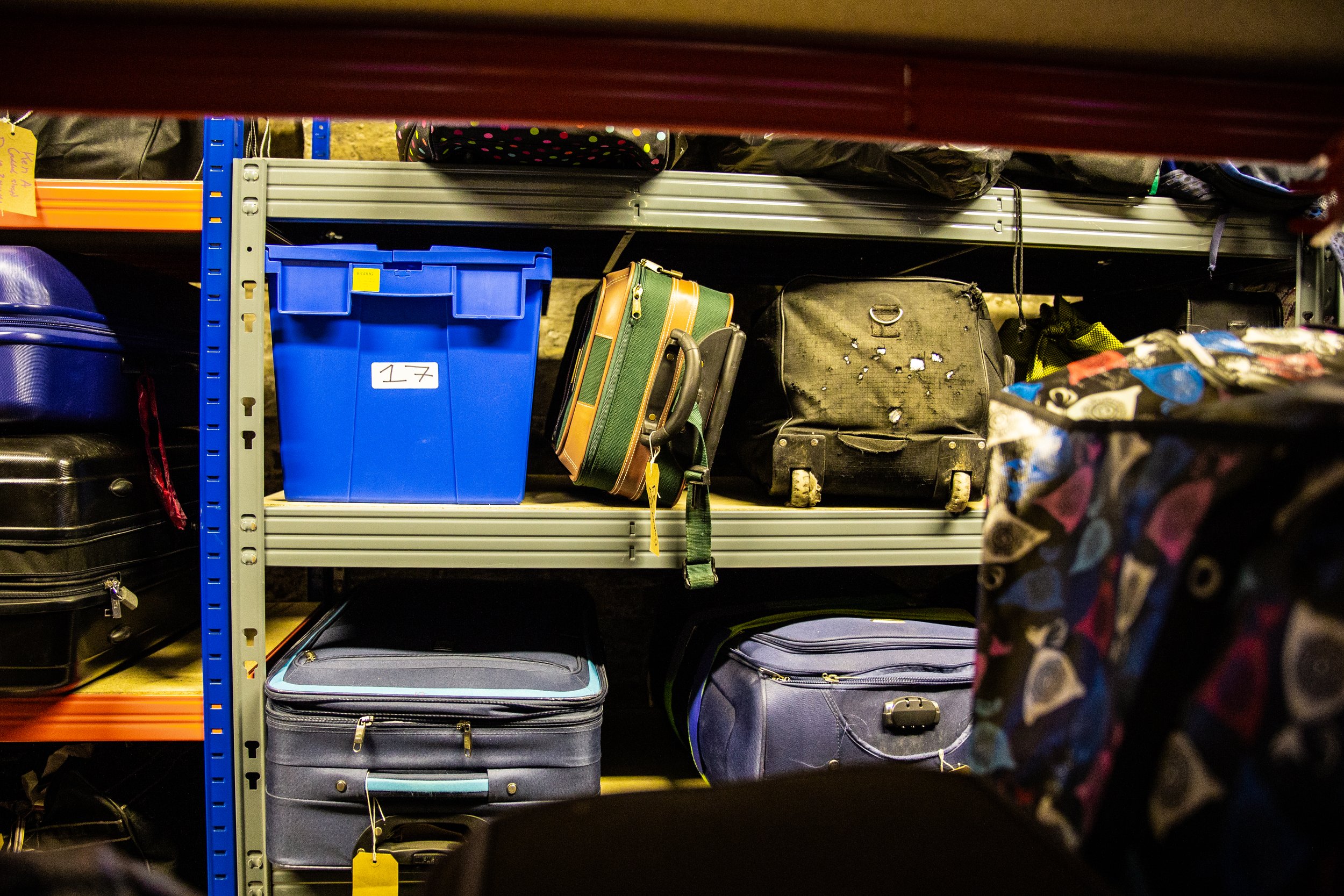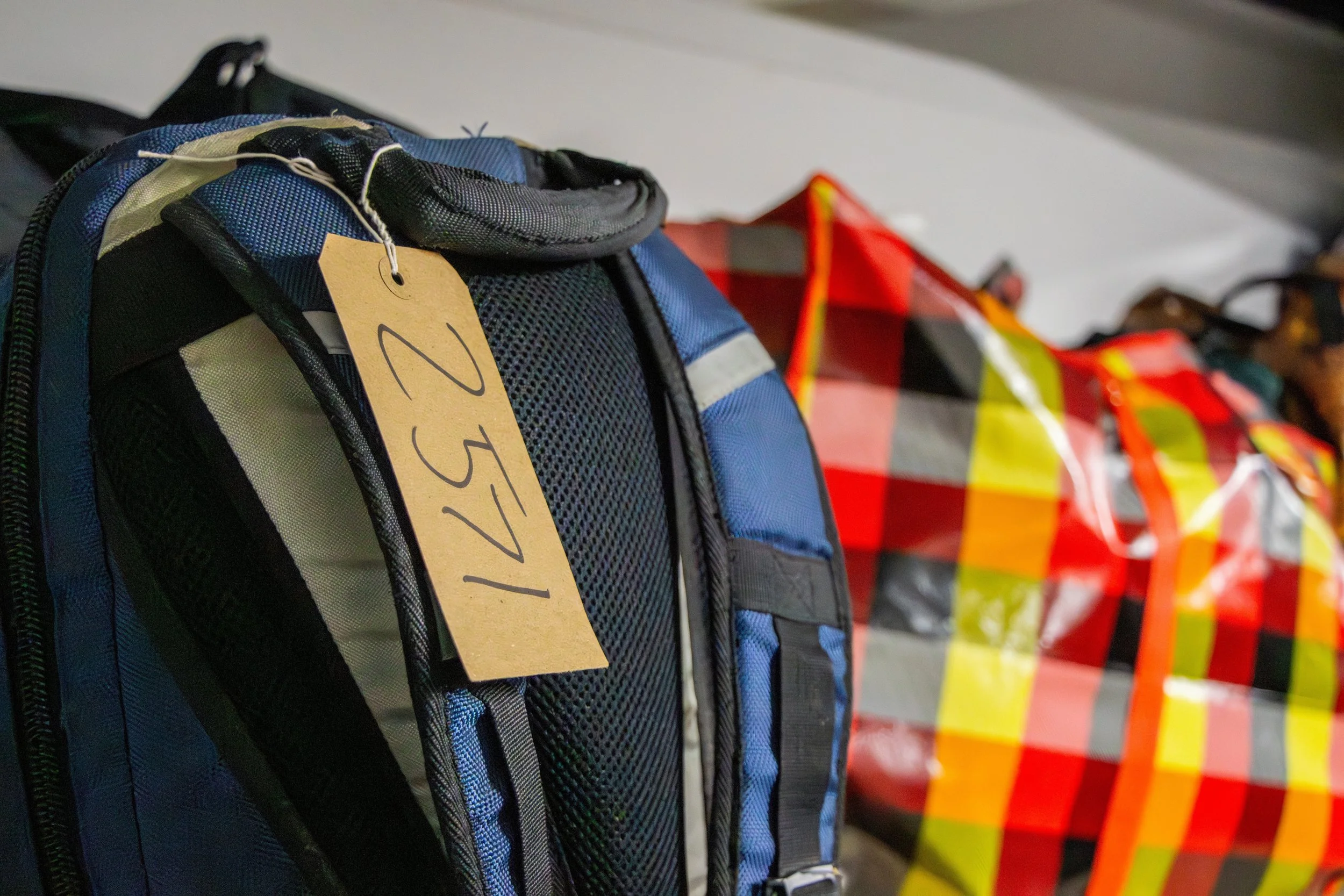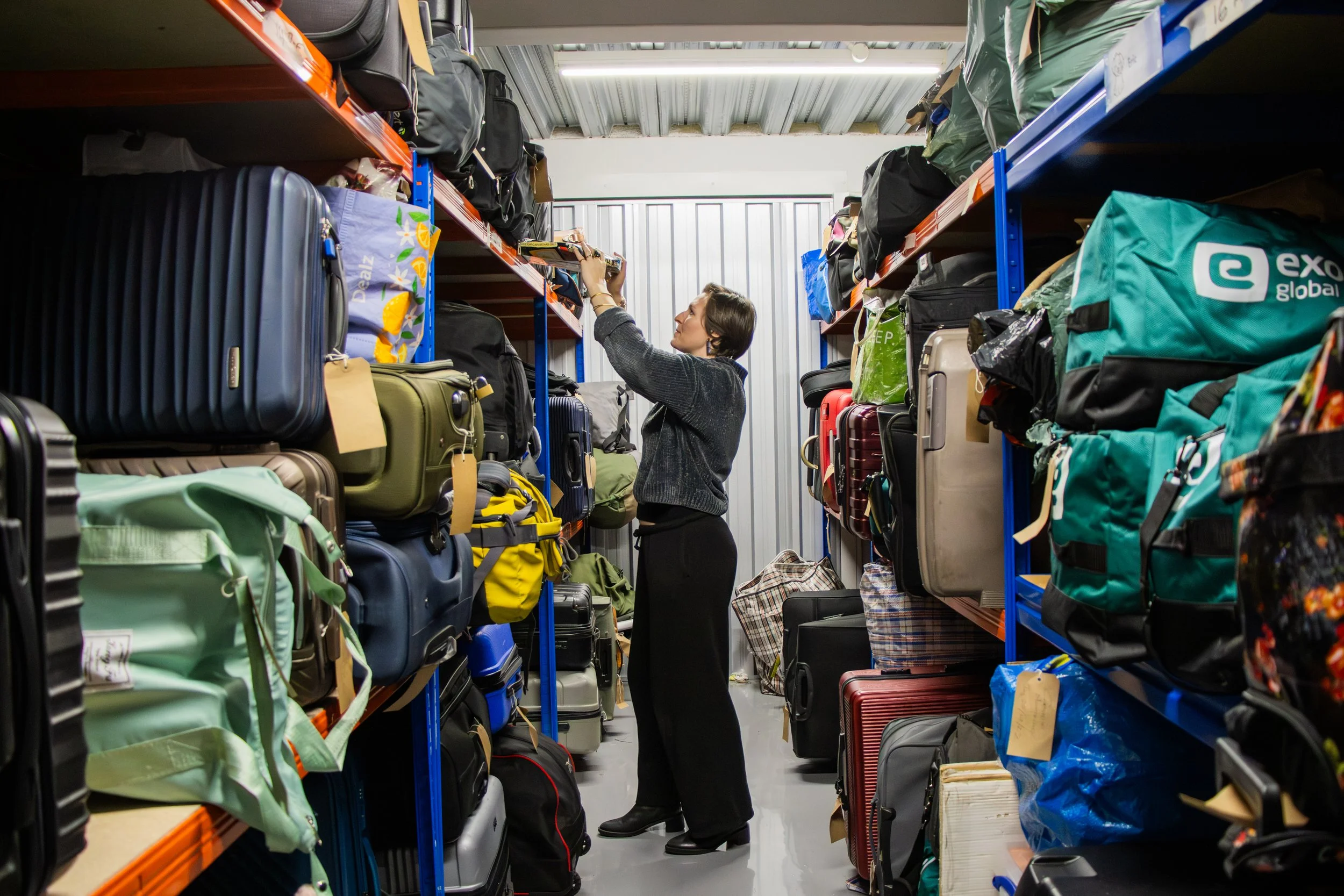The trust built from storage
Reading time: 4 minutes ⌚
After Tamara (Our Referrals and Storage Coordinator) recently supported someone in a critical situation, we asked her to share some reflections about other moments that stand out where we have provided support in recent months. To protect the privacy and dignity of the person most recently involved, we've blended several true stories we’ve heard into the below.
1. Can you describe the situation? What details made you aware this was an emergency?
“Sandra had been storing with us for a few months. When she first stored with us she seemed fairly optimistic but I noticed, as the months went on, that she became quieter, more withdrawn and would often arrive in tears. I would try to remind her that she could lean on us for support but she said she wasn’t ready. Then one morning a few weeks ago, she called me in tears telling me she’d met some people she thought were her friends but actually weren’t. They had a spare room and would offer her a bed sometimes: she thought she could trust them but over time had found they were trying to involve her in some dangerous activities.
Seeing the same faces regularly you begin to build a rapport, so on hearing the sudden change in her voice I knew something wasn’t right. I reassured her and invited her down to Street Storage so she could talk to us and we could try to help.
When she arrived, trembling and in tears, I brought her into our Welcome Room. The team managed the drop-in so I could give her my full, undivided attention in a safe space. I got her a hot drink and her belongings and acknowledged her worries. We spoke in depth, and I then contacted the appropriate services that could support her further. I stayed with her throughout our interactions with the services. I was there either to advocate on her behalf when she needed me, or to offer quiet support and presence as she navigated the next steps.”
2. When someone is in a crisis, their instinct is to find safety. Why do you think someone would come to us in an emergency over any other place?
“I think because we’re such a small team with an open-door policy, there are fewer barriers when building a trusting bond. Whereas in some organisations the Fundraising Manager, for example, might never come in: there’s so much interaction here from everyone in the staff team with everyone who uses the service. Everyone uses all the same facilities freely - there is no us and them. People are also given a sense of agency and autonomy: we’re going to respect you and listen to you and we expect the same from you.
People tell us they trust us because we store some of their most precious items in an organised and methodical way.
We also have a very quick response time, with most people storing within 24-48 hours. This makes people feel like a priority compared to other places where they’re likely to be put on a long waiting list.”
3. What items does this person have stored with us? What does this tell you about what people consider essential?
“A locket from her Grandmother because it was a sentimental keepsake that couldn’t be replaced”
“A laptop that could get stolen on the street”
“Winter clothes that are too heavy to carry around during the Summer”
“Smart clothes for job interviews and church so that she could ‘look the part and not raise questions’”
“This shows people value a variety of things, which they fight to hold onto even in stressful situations. There’s so much individuality in what people choose to store.”
4. We talk about storing bags, but we’re really storing a part of someone's identity and security. Does the simple act of securely handing over that bag create an immediate bond of trust between us and the person?
“People have had no other choice but to trust that their belongings will be safe once they leave them. The significance of losing all your belongings is severely under recognised. Belongings very easily become a part of our identities and many people store irreplaceable items. Sometimes when people think of homelessness, it’s usually an image of only having the clothes on your back. But where do all the belongings go that give a person a sense of self? So at a time when a person is in a vulnerable position, it’s like we’re taking care of that part of them.”
5. In your experience, how could the initial trust built with the team here at Street Storage then enable a person to trust other services, outreach workers or charities they may encounter later?
“We often see people at a critical point when they’ve just become homeless. This can allow us to then act as a bridge between that person and other services. From having a positive experience at Street Storage someone could feel more inclined to give other charities a chance to help them. Comparatively, there are people who have had negative experiences with homelessness services, which have left them feeling jaded and alone. Through their belongings being stored at Street Storage competently, someone may start to view other services more positively. We also receive feedback from external referral partners (from other organisations) who have found they have improved relationships with people they advocate for, because Street Storage responded to their referral on that person’s behalf and provided a quick solution/piece of support.”
6. What is the lasting impact of this particular interaction on you? What does this person's story reinforce about why you do this work?
“Although I manage the Storage and Referrals, I’m not surprised when people come to me in a crisis. The straightforward aspect of our service allows us to do one thing and do it well. This allows us to have more time to support people in other ways that we may not advertise.
The impact we have through looking after people’s belongings reminds me why I come to work every day.
People come into our drop-in not just for their bags but also just to chat and connect. Some people want to rant about their frustrations with their situation. Others just want a listening ear to talk about anything they can think of. I’m really glad we can provide this space.”



